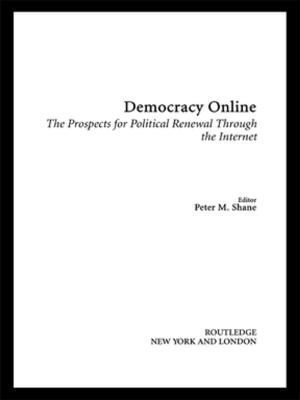Commission for Racial Equality
British Bureaucracy and the Multiethnic Society
Nonfiction, Social & Cultural Studies, Social Science, Sociology, Political Science| Author: | ISBN: | 9781351290548 | |
| Publisher: | Taylor and Francis | Publication: | November 30, 2017 |
| Imprint: | Routledge | Language: | English |
| Author: | |
| ISBN: | 9781351290548 |
| Publisher: | Taylor and Francis |
| Publication: | November 30, 2017 |
| Imprint: | Routledge |
| Language: | English |
In the United Kingdom, as in the United States, race relations are surrounded with taboos defined by the politically correct concepts of what Ray Honeyford calls the race relations lobby. This lobby, championed by the Commission for Racial Equality (CRE) has a vested interest in depicting the United Kingdom as a society rotten with endemic racism, and its ethnic minorities as victims doomed to failure. An outgrowth of the Race Relations Act of 1976, the Commission was founded in response to worthy concerns about race and patterned after its American prototype, the Congress of Racial Equality. Its constant demands for increased powers have only increased with the coming into power of the New Labour Party. That makes Ray Honeyford's critique all the more urgent. Honeyford exposes the policies and practices of the Commission to public view, encouraging informed debate about its need to exist. The CRE possesses considerable legal powers—powers which seriously undermine the great freedoms of association, contract, and speech as-sociated with the United Kingdom. Without denying the presence of racial prejudice, Honeyford shows that the picture of the United Kingdom as a divisive nation is a serious misrepresentation.
Placing the CRE in its historical and political context, Honeyford outlines its powers, and analyzes its formal investigations in the fields of education, employment, and housing. He also examines its publicity machine and its effect on public and educational libraries. He points out the danger of uncritically replicating the American experience. According to Honeyford, Americans have replaced a melting-pot notion of society, with all citizens loyal to a national ideal, with a "tossed-salad" concept which encourages the creation of self-conscious, separate, and aggressive ethnic groups, each claiming special access to the public purse, and having little regard for national cohesion and individual liberties.
In the United Kingdom, as in the United States, race relations are surrounded with taboos defined by the politically correct concepts of what Ray Honeyford calls the race relations lobby. This lobby, championed by the Commission for Racial Equality (CRE) has a vested interest in depicting the United Kingdom as a society rotten with endemic racism, and its ethnic minorities as victims doomed to failure. An outgrowth of the Race Relations Act of 1976, the Commission was founded in response to worthy concerns about race and patterned after its American prototype, the Congress of Racial Equality. Its constant demands for increased powers have only increased with the coming into power of the New Labour Party. That makes Ray Honeyford's critique all the more urgent. Honeyford exposes the policies and practices of the Commission to public view, encouraging informed debate about its need to exist. The CRE possesses considerable legal powers—powers which seriously undermine the great freedoms of association, contract, and speech as-sociated with the United Kingdom. Without denying the presence of racial prejudice, Honeyford shows that the picture of the United Kingdom as a divisive nation is a serious misrepresentation.
Placing the CRE in its historical and political context, Honeyford outlines its powers, and analyzes its formal investigations in the fields of education, employment, and housing. He also examines its publicity machine and its effect on public and educational libraries. He points out the danger of uncritically replicating the American experience. According to Honeyford, Americans have replaced a melting-pot notion of society, with all citizens loyal to a national ideal, with a "tossed-salad" concept which encourages the creation of self-conscious, separate, and aggressive ethnic groups, each claiming special access to the public purse, and having little regard for national cohesion and individual liberties.















